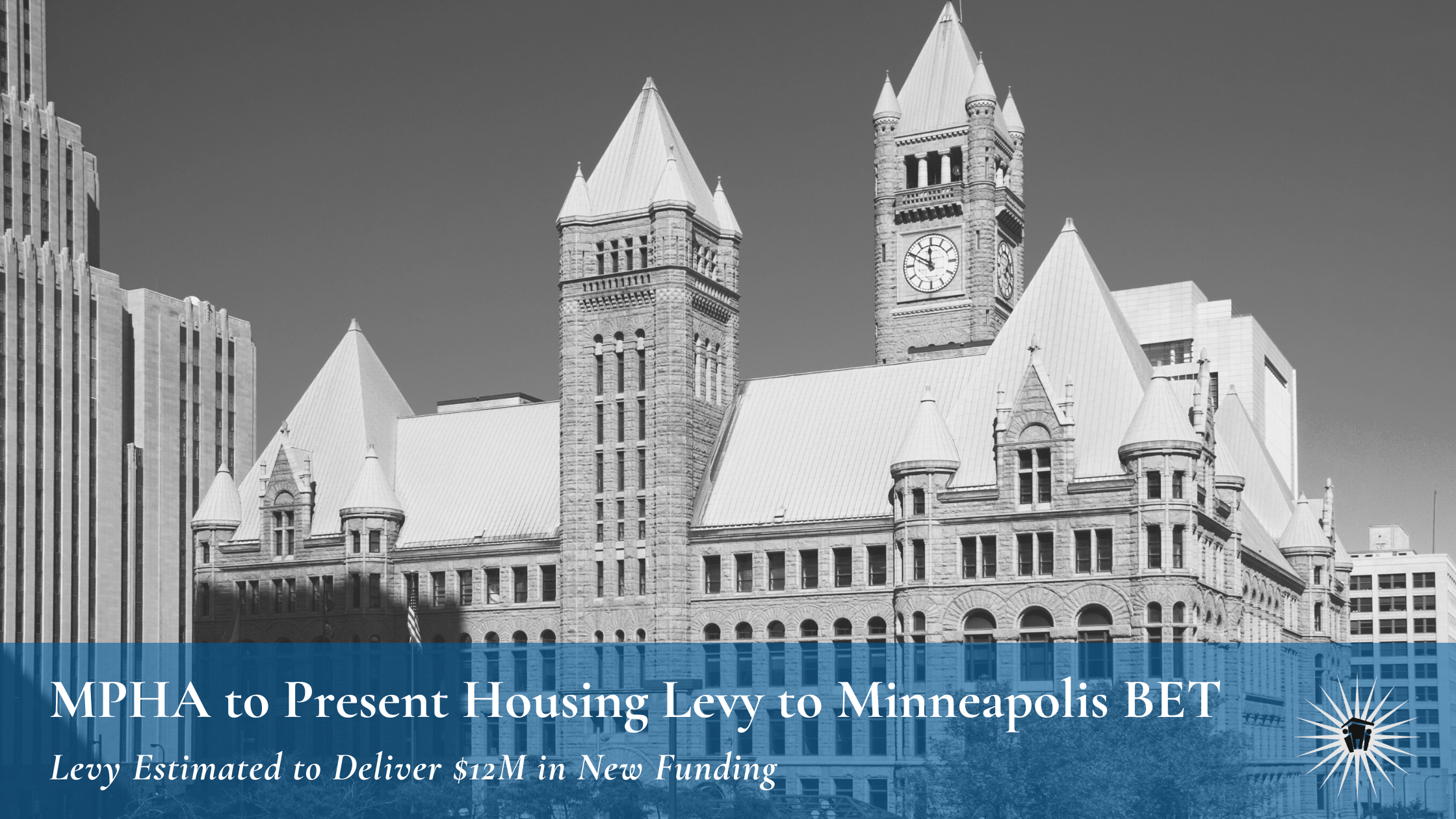On Wednesday, MPHA staff will present research on the impact of a fully funded housing tax levy in the City of Minneapolis to the Minneapolis Board of Estimate and Taxation (BET). The agency estimates a fully funded levy would generate $12 million annually in new funding to help MPHA expand its public and deeply affordable housing preservation and production activities.
“Our city and region face an affordable housing crisis, and it’s going to take an all-of-the-above approach to preserve and produce the housing our community needs,” said Abdi Warsame, Executive Director/CEO of the Minneapolis Public Housing Authority. “The agency’s nearly 6,000 units are critical city infrastructure, and they require a commensurate investment from the City of Minneapolis. The Mayor and City Council should seize this opportunity to approve this new funding for the public housing authority to help deliver the affordable housing Minneapolis residents desperately need.”
Historically, the U.S. Department of Housing and Urban Development (HUD) has only provided about 10 percent of the funding necessary for major building improvements. In 2022, MPHA received nearly $20 million from HUD to help the agency address its estimated $210 million capital backlog. Relying solely on HUD’s annual capital funding, the agency projects its capital backlog will reach $403 million by 2043.
In recent years, the agency has pursued an all-of-the-above approach in seeking new funding and partners to help address its capital needs. The agency has made progress and secured tens of millions in one-time, project-based, and ongoing funding support. However, it has not been enough.
A tool authorized by state statute and used by nearly 100 localities across Minnesota, Minneapolis is one of only a few localities in the state currently using no part of its housing levy authority. While levying authority is granted to MPHA as a special district, the agency requires approval from the Minneapolis Mayor and City Council. Approving a fully funded housing levy would provide the agency an estimated $12 million annually while costing the median Minneapolis homeowner (home valued at $316,000) just under $4.50 a month. The new funding would go directly to supporting and expanding the more than 26,000 people MPHA serves, 83 percent of whom are Black/African American (~21,500 people), 39 percent are children under 18 (~10,000 children), and 21 percent are elderly (62+, ~5,000 elders).
With a 20-year commitment from the city to approve a fully fund housing levy, MPHA estimates it would raise at least $240 million in new funding. The long-term commitment would also enable the agency to leverage various financial instruments to make the funding go even farther. Beyond addressing the agency’s capital backlog in a significant manner—which is a snapshot of simply making in-kind repairs/replacements—the agency also anticipates it would be able to make livability enhancements to existing units and add hundreds of new deeply affordable units throughout the city.
Following the informational presentation to the Board of Estimate and Taxation, the agency needs the City Council to pass a resolution consenting to MPHA using its full levying authority and/or Mayor Frey would include the levy as a part of his annual budget, to be approved by the City Council.
[Editor’s Update: On June 28, the MPHA Board of Commissioners passed and transmitted a proposed five-year capital plan for a fully funded housing levy.]






